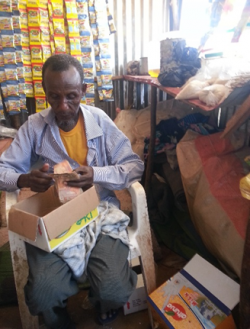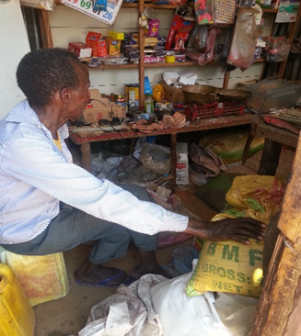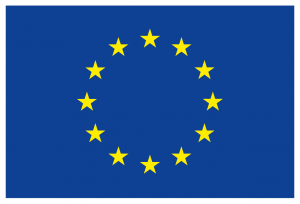Surviving the drought: Jumping from destitution to economic independence
The STREAM consortium provides access to sustainable livelihoods opportunities for households through cash transfers.

Abdi has been receiving cash through ACTED’s cash transfer programme for several months now. His household having been identified as one of the most vulnerable of Dalxiiska camp, a camp that hosts displaced people in Kismayo town, Abdi needed immediate support to help him survive the ongoing drought in Somalia. A father of six and a husband, Abdi was not able to support his growing family needs because of a lack of livelihood opportunities. The family was surviving on one meal a day, hardly did they have anything to meet their daily dietary needs. Access to medical care and education for the children was limited. Debts were accumulating so fast that the little money he made could not support his family. Abdi was selected as one of ACTED’s beneficiary for the resilience project funded by the European Union. The project implemented by the Somalia Resilience Action (STREAM) consortium, comprised of ACTED/SADO and Adeso, aims at providing a sustainable opportunity for resilience building for communities chronically affected by food insecurity and humanitarian crises in Kismayo, Afmadow and Dhobley areas in Lower Juba region.
Restoring livelihoods for vulnerable households in Lower Juba
After registration, Abdi was issued with a SIM card and a beneficiary ID card to help him access cash and use it to meet his immediate needs. The cash enabled him to feed his family, take his children to school, pay his debts, repair their shelter as well as establish a livelihood activity to generate more income.

With the support given to the family by ACTED/SADO, Abdi managed to start a small scale business in Dalxiiska market. He stocked his shop with household commodities like sugar, tea leaves, rice, pasta, and salt, among others. The community has been his greatest support as they continuously come to buy goods from his shop. His income has fairly increased and he sees himself building a bigger business to stabilize his source of income. Cash transfers aim at reducing food insecurity amongst vulnerable household, creating a positive impact in their lives. Livelihood creation is a ripple effect that enables business owners and the local community to benefit from each other creating a huge impact in the lives of community members. Before the intervention, the community was faced with scarcity of food, clean water, clothing, shelter and loss of livelihoods due to the ongoing drought. Conditions have now improved significantly as more and more households receive humanitarian assistance to counter the drought effects.
The social safety net project is targeting 5,000 vulnerable households (est. 30,000 individuals) with regular, predictable, and unconditional cash transfers to help them manage the daily chronic needs in out-of-emergency situations. The project further supports initiatives to strengthen and diversify beneficiaries’ livelihoods which complements the unconditional cash transfers. Such initiatives includes interest-free revolving cash grants to initiate or boost their small scale businesses alongside continuous livelihoods skills training, peer support and mentoring to build their entrepreneurial capacity.
“My self-worth and dignity in the community has been restored. I now go to my shop daily to work so as to provide for my family,” Abdi says with a smile on his face.
“Now my family members are happier than they were before. They now eat as much as they need and have other needs met, thanks to the money I get from my business,” added Abdi.
